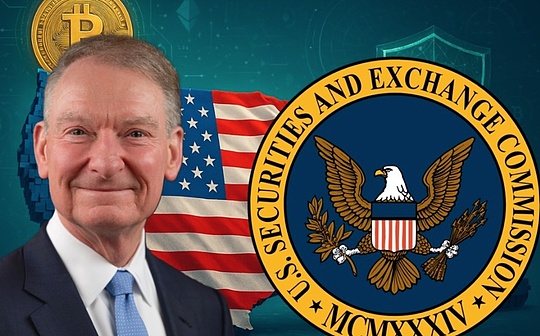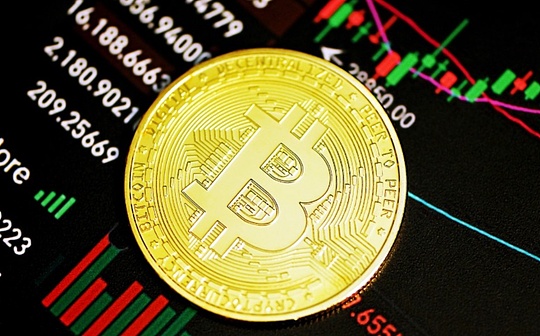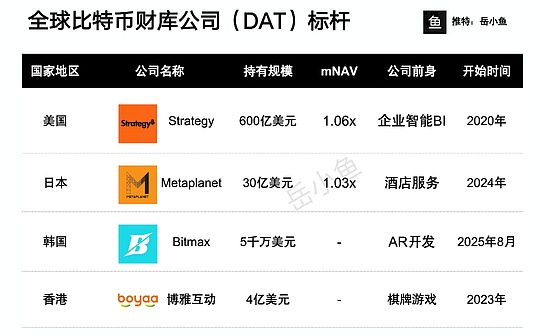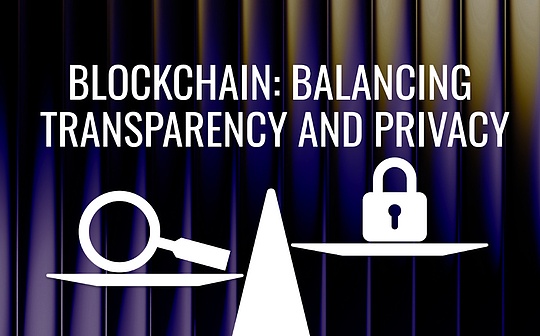
source:Keynote speech by US SEC Chairman Paul S. Atkins at the OECD Global Financial Markets Roundtable;Compiled: bitchain vision
Good afternoon, ladies and gentlemen.First of all, I would like to thank the Secretary-General Mr. Koeman for his enthusiastic introduction.I also thank Carmain for inviting me to attend this roundtable and organized such a timely discussion on how we can work together to encourage global capital market competition and promote economic growth in their respective jurisdictions.I know that everyone here today is committed to achieving these goals, which can be seen from your attendance at today’s meeting.
I am very honored to be with you, especially as our SEC returns to the core mission of protecting investors, maintaining a fair, orderly and efficient market, and promoting capital formation.
Now, before I elaborate further, I am sure you have understood that the views I express here represent only me and do not necessarily reflect the views of the SEC or other colleagues of my committee.But for me, returning to France is also a kind of home.In the late 1980s, I was also a young lawyer in the Paris office of a New York law firm, where I not only learned the complexity of international finance, but also realized the lasting value of cross-cultural cooperation.I have served in the SEC several times in the following decades, which further led me to realize that the principles we cherish in the United States, including the power of free enterprises and the vitality of capital markets, can also find common ground abroad.It is in this spirit that I welcome today’s discussion on promoting domestic economic growth and opportunities.
Special arrangements for foreign issuers
For many years, the topic of US-European cooperation has fascinated me.I clearly remember the scene before the Big Bang in 1992, when that great change gave birth to a single European market and brought about a series of major opportunities that followed.For us who were in it at the time, it was exciting to witness the gradual formation of the European internal market driven by business and competition.These themes are once again at the moment Europe considers the direction of initiatives such as the Savings and Investment Alliance.Meanwhile, even as the European continent is increasingly connected, it is still important to maintain contact with regions outside the new European market.Of course, countries like the United States must continue to work constructively with the world in ways that promote their own prosperity.
At SEC, these priorities are reflected in our work:Attract foreign companies into the U.S. market and provide Americans with opportunities to invest in these companies, while ensuring a level playing field for U.S. and foreign companies and protecting our investors.Of course, the size and depth of the US capital market have always been attractive to non-U.S. companies.They can gain a variety of potential benefits, including higher valuations, greater liquidity, access to U.S. capital, and increase visibility and reputation in financial markets.
Since the SEC was founded, our rules have provided special conveniences for foreign companies entering the U.S. capital market.These convenience measures recognize differences between U.S. companies and foreign companies in terms of business and market practice, accounting standards, corporate governance requirements, etc.Nevertheless, the SEC has always been concerned that U.S. investors need to fully understand the information of foreign issuers and to what extent such information is provided in accordance with the laws of their own jurisdictions.
In 1983, the SEC established the basis for the current standards, under which foreign companies should enjoy these special treatments.Since then, the SEC has reevaluated and updated this standard as needed to respond to changes in global markets and protect U.S. investors.One of the first actions I took as chairman wasRequests the Commission to approve the issuance of a conceptual statement to seek public comments on whether this standard should be updated to reflect changes in the financial markets and corporate legal structures.
The statement is intended to seek public comments to explore whether foreign companies listed in the United States should be subject to additional conditions (such as minimum foreign transaction volume or listing on major foreign exchanges) so that they can gain access to conveniences that American companies do not enjoy.
It should be clear thatThe SEC welcomes foreign companies seeking to enter the U.S. capital market.The issuance of this statement does not mean that the SEC intends to prevent such companies from listing on US exchanges.Instead, our goal is to better understand the impact of significant changes in the number of foreign companies listed in the United States over the past two decades on U.S. investors and the U.S. market.Notable changes include the composition of foreign companies reported to the SEC and the increasing number of companies being incorporated in jurisdictions such as the Cayman Islands, which differ from the company’s headquarters, operations, and governance frameworks involving shareholder interests.In view of these changes, is the original intention of the SEC to unconditionally provide special conveniences to all foreign companies still reasonable, or should our rules be updated?Our rules are reviewed retrospectively to assess whether they continue to achieve their intended policy objectives, one of the hallmarks of an effective regulatory agenda.
While the official comment period ended last Monday, the SEC will of course consider comments received after the deadline to assess whether a change to the rule is proposed.I look forward to reviewing public feedback on this issue.
High-quality accounting standards
When we look at the types of foreign issuers receiving special treatment from a completely new perspective, we should also not ignore the basis of any effective regulatory regime:High-quality accounting standards and financial importance.
Regarding accounting standards, U.S. companies must prepare financial statements in accordance with U.S. General Accounting Standards (US GAAP).I voted in 2007 for the amendment of the rules, allowing foreign companies to prepare financial statements in accordance with the International Financial Reporting Standards (IFRS) issued by the International Accounting Standards Board (IASB) without the need to coordinate with the US General Accounting Standards.
When canceling the coordination requirements, the SEC pointed out that “the sustainability, governance and continuous independent operation as a standard-setting agency are important considerations for (revoking the coordination requirements), as these factors are related to the ability of the IASB to continue to develop high-quality globally recognized standards.” The SEC specifically pointed out that the IASB Foundation (the predecessor of the IASB Foundation) has the ability to obtain “stable funding” for the IASB.
In 2021, the International Financial Reporting Standards Foundation announced the establishment of the International Sustainable Development Standards Board (ISSB), whose trustees are now responsible for raising funds for the IASB and ISSB.The recent expansion of the IFRS Foundation’s scope of reference cannot deviate from its long-standing core responsibility, namely, funding the IASB.In turn, the IASB must promote high-quality accounting standards that should focus on promoting reliable financial reporting and should not be used as a backdoor to achieve political or social agendas.Reliable financial reporting is essential to support capital allocation decisions.We are all keen to have sufficient funds and normal operations of IASB, and I encourage the IFRS Foundation to achieve its goal of “stable funds” and prioritize IASB and its focus on financial accounting standards over speculative and speculative issues.
If the IASB is not fully and stable financially supported, one of the prerequisites for the SEC to cancel the requirements for the preparation of the accounting standards adjustment requirements for foreign companies in 2007 may no longer hold, and we may need a retrospective review of the decision.
Financial Importance
Of course, in addition to high-quality accounting standards,Regulation based on financial importance is another pillar for achieving efficient capital flows.Focusing on financial importance means that information disclosure requirements, corporate governance standards and other regulatory measures are oriented to the interests of investors, after all, investors provide capital for the products, services and jobs created by the company.In contrast, regulatory systems based on dual importance take into account other non-financial factors.
In the EU, two recently adopted laws—the Corporate Sustainable Development Reporting Directive (CSRD) and the Corporate Sustainable Development Due Diligence Directive (CSDDD)—promote a dual importance regulatory approach.These laws also affect U.S. companies operating in the EU.
I am deeply concerned about the mandatory nature of these laws and the burden on U.S. companies, as these costs may be passed on to U.S. investors and clients.While I am encouraged by the EU’s recent commitment to ensure that these laws do not impose excessive restrictions on transatlantic trade and appreciate the efforts to simplify and optimize these laws, further efforts are needed to refocus the regulatory regime on the principle of financial importance rather than on the principle of dual importance.In fact, as Europe seeks to promote its capital markets by attracting more companies and investments, it should strive to reduce the unnecessary reporting burden of issuers rather than pursue goals that are not related to the success of the company’s economy and its shareholders’ well-being.
Project Crypto
The same priorities prompt us to unlock the potential of digital assets in the U.S. when we call on our partners to increase investor confidence and active markets within their jurisdiction.
As I mentioned earlier today, in the late 1980s, I worked at Concorde Plaza about four kilometers away from our current meeting.At that time, I could hardly imagine myself coming back here as I am now to talk about new technologies, including those that were once completely denied or boycotted but are now completely changing global finance.At this moment, we are a few steps away from Victor Hugo Avenue, and it seems perfect to quote him to describe the present: “The people can resist the invasion of the army, but they cannot resist the invasion of the mind.” The invasion of the army can resist, but once the time for the thought is ripe, it cannot be stopped.Ladies and gentlemen, today we must admit:The era of cryptocurrencies has arrived.
For a long time,SEC has been abused to suppress the cryptocurrency industry.This practice is not only ineffective, but also harmful;It has led to employment, innovation and capital flows overseas.American entrepreneurs were the first to be hit and were forced to invest heavily in building legal defense systems rather than business development.This has become history.
SEC ushered in a new day.Policy will no longer be formulated by temporary law enforcement actions.We will provide clear and predictable rules to ensure innovators thrive in the United States.President Trump has instructed me and colleagues from all departments of the administration to build the United States into the world’s cryptocurrency capital, and the President’s Digital Asset Markets Working Group has developed a grand blueprint to guide us in these efforts.
As Congress drafts comprehensive legislation, the Working Group has directed U.S. regulators to act quickly to update our outdated rulebook.We are fulfilling this mission with Project Crypto, a comprehensive plan to update securities rules and regulations to enable our market to operate on-chain.Our focus is clear: we must ensure the security of crypto assets.Most crypto tokens are not securities, we will clearly define the boundaries.We must ensure entrepreneurs can raise funds on-chain without facing endless legal uncertainty.We must also allow “superapp” trading platform innovation to increase the choice of market participants.The platform should be able to provide transactions, lending and pledge services under a single regulatory framework.Investors, consultants and broker-dealers should also be able to choose from a variety of custodial solutions.
Meanwhile, in the spirit of the recent Working Group Report, the SEC will work with other institutions so that the platform can provide services such as crypto asset trading (whether securities or not) as well as pledge and lending under a single regulatory framework.I thinkRegulators should provide the minimum effective regulatory force required to protect investors and should not be overloaded.We should not allow business entrepreneurs to bear the burden of repeated rules that only the largest existing enterprises can bear.By freeing up trading venues and product competition, we can help ensure that U.S. businesses compete fairly around the world.
President Trump calls the United States a “land of builders.”During my time as Chairman, the SEC will encourage these builders rather than stifle them with red tape.Our goal is simple: to start a golden age of financial innovation in the United States.Whether through tokenized stock books or brand new asset classes, we hope to make breakthroughs in the US market and benefit American investors under US regulation.
International cooperation opportunities
Of course, these priorities can reach their maximum potential when we strategically work with international partners who are also committed to innovation and regulatory clarity.The market thrives when capital flows freely to its most productive uses.Public blockchains are global in nature and provide a rare opportunity to modernize the foundations of payments and capital markets..Through cooperation, the United States and Europe can strengthen our domestic economies while strengthening our transatlantic partnership.It is commendable that Europe has taken the lead.As the Digital Asset Market report points out, the EU’s Crypto Asset Market (MiCA) regulations embody a comprehensive digital asset system.Some European policymakers have called for the development of “MiCA 2” to address issues such as decentralized finance (DeFi), non-fungible tokens (NFTs), and digital asset lending.I appreciate the vision our European allies have shown in their initial attempts to regulate clarity and believe that the United States must learn from these efforts.
That being said, I am determined to ensure that the United States is leading the way in creating an economic environment that supports financial innovation.As we catch up, I look forward to working with international peers to promote the market to be more innovative.As Alexander de Tocqueville said, working together can “expand” the areas of freedom and prosperity.
Artificial Intelligence and Finance: A New Era in Market Innovation
For us, the U.S. leadership in finance depends on planning for the future, not fear of it.Just as blockchain is reshaping the way we trade and settle assets, artificial intelligence (AI) is opening the door to proxy finance——In this system,Autonomous AI agents can execute transactions, allocate capital and manage risks at speeds that humans cannot match, and securities law compliance is embedded in their code.
The benefits can be huge: faster markets, lower costs, and wider access to strategies that once belonged to major Wall Street companies.PassBy combining artificial intelligence with blockchain, we can empower individuals, enhance competition, and open up a new situation of prosperity.
The government’s responsibility here is to ensure a reasonable regulatory framework is established while eliminating regulatory barriers that hinder innovation.Artificial intelligence is now part of our capital market and its role will only increase day by day.We must resist the temptation of overreacting by fear.The on-chain capital market and agency finance are about to come out, and the whole world is paying attention.The choice we face is simple and profound: either the United States moves forward with confidence and determination, or other countries will do so.I choose leadership, freedom and growth—for our market, our economy, and for the next generation.I look forward to working with international peers who are interested in pursuing a more prosperous and freer society.
Finally, with your cooperation, we can formulate future regulatory measures so that they can not only achieve the original intention of protecting investors, but also provide sufficient room for development for innovators and entrepreneurs.As I said before, the SEC is here to have a new day and we are re-adjusting its consistent principles based on emerging possibilities.I believe that international cooperation in the regulatory matters I am discussing will benefit us in the long run, both for the United States and globally.I look forward to working hand in hand with everyone and working together with determination to be worthy of the opportunities ahead.







